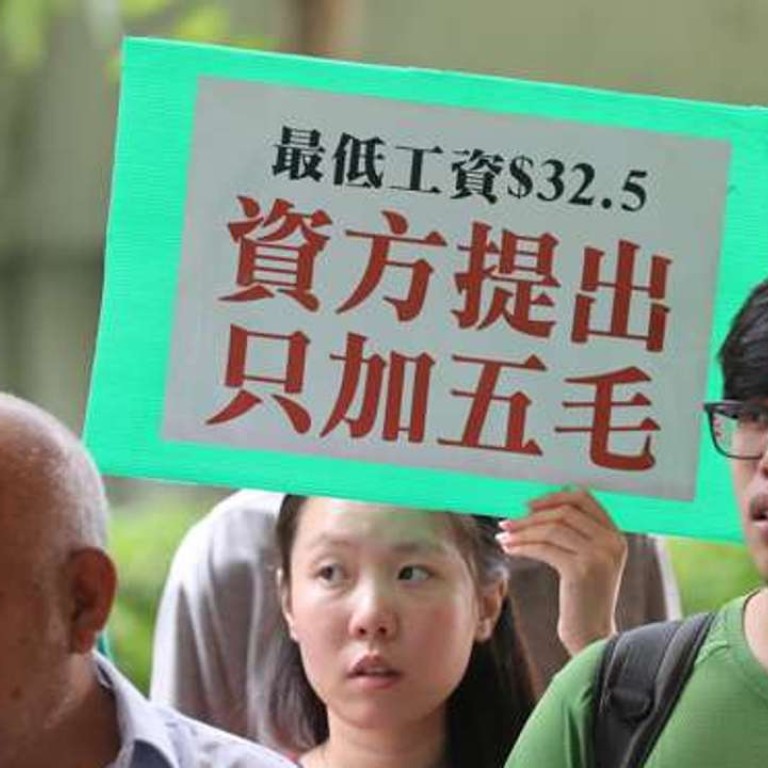
There is no reason why agreement can’t be reached on labour issues
With differences narrowed over the minimum wage rise, employers, workers and the government have the tools needed to solve other pressing matters
It takes the most penny-conscious to argue over a dollar for months. But in the case of adjusting the legally binding wage floor for the city’s poorest workers, every cent matters. The latest indication is that representatives of workers and employers have further narrowed their difference on the proposed hourly wage, from the previous range between HK$34 and HK$35, to HK$34.5. Subject to approval by the Executive Council, the new wage will take effect in May.
The proposed HK$2 increase is by no means generous for an affluent city like Hong Kong. As the floor is only reviewed every two years, unionists understandably push for a bigger rise. But with the economic outlook clouded with uncertainties, employers have good reasons to be cautious. Compared to the baseline of HK$28 when the wage was first introduced in 2011, the wage floor has, after all, gone up by 16 per cent. The new level represents another 6.16 per cent rise, though it will be the smallest adjustment since the introduction.
The wage review is already less controversial compared with the ongoing attempt by the government to introduce standard working hours. Two and a half years have passed since a panel was set up to tackle the issue. Regrettably, we are still nowhere near a consensus. The stakes have been raised even higher recently, with labour representatives resigning en masse from the panel ahead of a public consultation on the way forward.
Even more challenging is the pledge by Chief Executive Leung Chun-ying to look into the controversial mechanism under which bosses can offset severance payments with contributions they pay into the Mandatory Provident Fund for employees. It is good that Leung has renewed his commitment to tackle the issue in the remaining nine months of his current term. But if the debates over the minimum wage and standard working hours are anything to go by, an immediate consensus seems unlikely.
Unlike some overseas countries where labour disputes often become flashpoints for violence and instability, Hong Kong enjoys relatively cordial labour relations. This owes much to the long-standing tripartite mechanism, under which employers and workers’ representatives are expected to iron out differences with government mediation. The system has been working well.
Back then, the introduction of the minimum wage was so contentious that few believed such a law could be enacted. But both sides managed to forge a consensus on wage levels. Through partnership and compromise, there is no reason why the outstanding labour issues cannot also be resolved.

